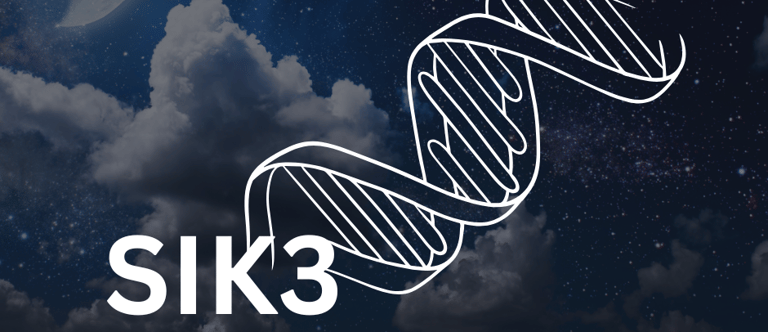Decoding the SIK3-N783Y mutation: Insights into short sleep phenotypes
Have you ever wondered about people who have only a few hours of sleep and can function the next day? Aren't you jealous? Well, science has finally offered some answers.
Marvin De los Santos
5/3/20252 min read
In this recent Paper Digest from Plethoryt, we highlight a new study by Chen et al., published in PNAS, where they explore the role of the SIK3-N783Y mutation in regulating sleep patterns. In this paper, the researchers uncover how a single mutation in the SIK3 gene can influence our nightly rest, offering a window into the biology of sleep duration.


Understanding the SIK3-N783Y mutation and its impact on sleep
Sleep, a fundamental aspect of human health, is influenced by a complex interplay of genetic and environmental factors. Recent research has highlighted the significance of the SIK3 gene in regulating sleep patterns. In a study published in the Proceedings of the National Academy of Sciences (PNAS), researchers investigated the effects of the N783Y mutation in the SIK3 gene. This specific mutation was found to influence sleep duration by altering the protein's kinase activity, which plays a pivotal role in various cellular processes.
The study utilized genetically modified mice to observe the physiological and behavioral changes resulting from the N783Y mutation. Findings indicated that mice with this mutation exhibited altered sleep patterns, suggesting a direct link between the SIK3-N783Y mutation and sleep regulation. These insights not only deepen our understanding of the genetic mechanisms underlying sleep but also open avenues for exploring therapeutic targets for sleep disorders.
The impact
Understanding how the SIK3-N783Y mutation influences sleep patterns could lead to innovative ways to address sleep-related health issues. From managing sleep disorders to optimizing sleep efficiency for those who require fewer hours, the potential applications extend from healthcare to lifestyle improvements.
Imagine a future where individuals who naturally require less sleep could harness their unique biology without adverse effects. This research paves the way for personalized sleep strategies that take genetic factors into account, ultimately contributing to enhanced well-being and productivity.
Read more
H. Chen, Y. Xing, C. Wan, Z. Zhang, Z. Shi, Y. Liang, C. Jin, Y. Chen, X. Zhou, J. Xu, L.J. Ptáček, Y. Fu, & G. Shi, The SIK3-N783Y mutation is associated with the human natural short sleep trait, Proc. Natl. Acad. Sci. U.S.A. 122 (19) e2500356122, https://doi.org/10.1073/pnas.2500356122 (2025).
Interested in learning more?
For researchers and scholars delving into the complexities of sleep genetics, accessing comprehensive academic support is crucial. Plethoryt offers a suite of services tailored to facilitate in-depth research and dissemination:
Academic Services: From literature reviews to data analysis, our team provides meticulous support to ensure the robustness of your research.
Research Solutions: We assist in designing and implementing research methodologies that align with your study objectives.
Publication Support: Navigating the publication process can be challenging. Our experts guide you through manuscript preparation, journal selection, and submission protocols.
By leveraging Plethoryt's resources, researchers can enhance the quality and impact of their work in the field of sleep genetics and beyond.
Subscribe to our newsletter
Enjoy exclusive special deals available only to our subscribers.